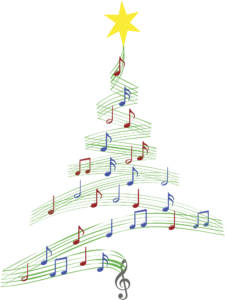Holiday Carols for the Season

Holiday Carols are a great way to spread the holiday spirit and really get people in the Christmas mood.
Traditionally, a holiday carol is a religious song of joy linked to a particular season. Most people associate carols with Christmas. Many of the most popular carols sung in churches were written in the Victorian age.
Holiday Carols for Caroling
- “Do You Hear What I Hear?” is a fairly recent song made popular by Bing Crosby. It was actually written as a plea for peace during the Cuban missile crisis, but the writer, Noël Regney, was inspired to add the Christmas lyrics.
- “Here We Come A-wassailing” is from the English tradition of orphans and beggars dancing and singing in the streets hoping to get treats and drinks from the homes of the gentry during the Christmas season.
- “Mary, Did You Know?” debuted in 1991 and has become a very popular Christmas song.
- “O Holy Night” was added to the list of Christmas carols by French poet Placide Cappeau. Adolphe Adam, a French composer, wrote the music. Opera singer Emily Laurey was the first to sing the tune, but there are many current renditions of this familiar song that reflects on the birth of Jesus.
- “Hark! The Herald Angels Sing” was given to us by Charles Wesley, but George Whitefield gave us the adaptation we’re more familiar with today. Felix Mendelssohn’s music was adapted by an English composer to fit the words and phrasing.
- “The Little Drummer Boy” might have been made popular by the 1968 television special, but it was actually recorded by the Austrian Trapp Family Singers in 1951. “The Little Drummer Boy” is a carol from Czechoslovakia, which has been recorded multiple times by many popular singers.
- “Joy to the World” is said to be the most-published Christmas carol in North America. Isaac Watts wrote the lyrics, basing them on Psalm 98. The music is thought to be based on the “Messiah” oratorio by George Frideric Handel, but there is no actual evidence to support this.
Other Holiday Staples
- “What Child Is This?” is more popular in North America than in its birthplace of England. The tune is from a traditional English folk song, “Greensleeves.” William Chatterton Dix wrote the lyrics for the Christmas carol, which has been recorded by many popular artists for special Christmas albums.
- “Mary, Did You Know?” debuted in 1991 and has become a very popular Christmas song. Michael English was the first to record it, but Clay Aiken, Cee Lo Green and Pentatonix have all created their own version of the song.
- “O Holy Night” was added to the list of Christmas carols by French poet Placide Cappeau. Adolphe Adam, a French composer, wrote the music. Opera singer Emily Laurey was the first to sing the tune, but there are many current renditions of this familiar song that reflects on the birth of Jesus.
- “We Three Kings of Orient Are” was written in the mid-19th century by an American clergyman who served in the Episcopal Church. It’s actually about an event that occurred after the birth of Christ, but it remains a popular Christmas song.
- “Angels from the Realms of Glory” was written by Scottish poet James Montgomery and first published in 1816. The music was added later, with English and American versions to different tunes.
- “O Little Town of Bethlehem” was penned by Phillips Brooks, a priest in the Episcopal Church. His organist would add the music. Neither believed that the hymn would outlive the first performance during the 1868 Christmas season, but it’s one of the most popular Christmas carols today.
Expand Your Caroling Horizon
This year, as you sing the Christmas music of your faith, think about the message in the words. Remember that the season is about family and friends, Christ’s birth and goodwill toward all. Be kind toward each other and consider that not everyone celebrates Christmas as you know it. “Happy Holidays” is a greeting that encompasses many different faiths. Use it when in doubt.

